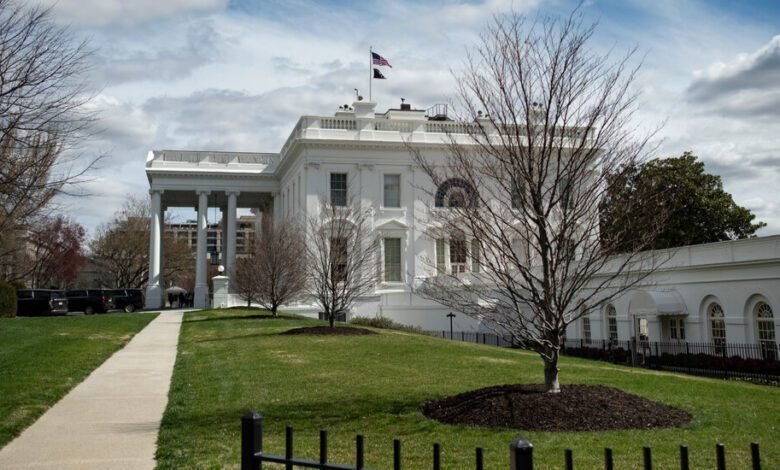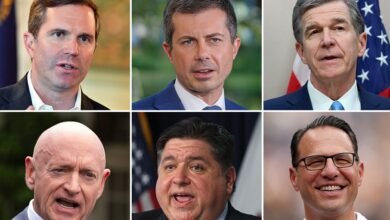The Fed tries to avoid politics, but the election year is making it difficult

Federal Reserve officials fiercely protect their separation from politics, but the presidential election is putting the institution on an intensive course of partisan disputes.
Fed officials set policy independently of the White House, meaning that while presidents can push for lower interest rates, they cannot force central banks to reduce borrowing costs. Congress oversees the Fed, but it also lacks the power to directly influence rate decisions.
There is a reason for this separation. Incumbent politicians generally want low interest rates, which helps stimulate economic growth by making credit cheap. But the Fed uses higher interest rates to keep inflation slow and steady – and if politicians are forced to keep rates low and pump up the economy all the time, that could allow these price increases to run out of control.
In light of the Fed’s independence, presidents have largely avoided talking about central bank policy since the early 1990s. Pressuring officials toward lower rates probably wouldn’t help, administrations reasoned, and could instead In fact, it backfired, encouraging policymakers to keep rates higher for longer to prove they were independent of the White House.
But Donald J. Trump overturned that norm when he was president. He called Fed officials “stupid” and implied that Jerome H. Powell, the Fed chairman, was an “enemy” of the United States for keeping rates too high. And he has spoken about the Fed in political terms while campaigning as the presumptive Republican nominee, suggesting that cutting interest rates before November would be a ploy to help President Biden win a second term.
Some of Trump’s allies outside his campaign have proposed that the Fed’s regulatory functions should be subject to White House review. Trump has also said he intends to place all “independent agencies” under the control of the White House, although he and his campaign have not specifically addressed the direction of the Fed’s interest rate decisions.
The White House’s direct input into Fed policy seems “far-fetched,” said Gabriel Chodorow-Reich, an economics professor at Harvard. But he noted that administrations could undermine central bank independence in more subtle ways, including through who they choose to appoint to key Fed positions (Powell’s term as chairman expires in May 2026) and through prolonged pressure campaigns. .
“There are elements of this that could happen that are not immediately cataclysmic, but over time, by reducing the Fed’s independence, they make it more difficult” for the Fed to make difficult decisions, such as raising rates to slow the economy, Mr. — he said. Reich.
And in the short term, the reality that the Fed appears likely to remain a political issue before the election has some economists wondering whether central bankers would feel comfortable starting to cut interest rates at their meetings. September or November, even if inflation cools enough to do so. Taking action just before the election could draw even more attention to the Fed.
But some economists think authorities will continue to cut later this year if warranted, regardless of the political backlash that might result.
“My guess is that, ceteris paribus, they would like to stay out of the election,” said Donald Kohn, a former Fed vice chairman who is now at the Brookings Institution, referring to the Latin phrase that means everything else is kept the same. “Other things will not be the same. The data received will be the main factor governing the interest rate cut.”




